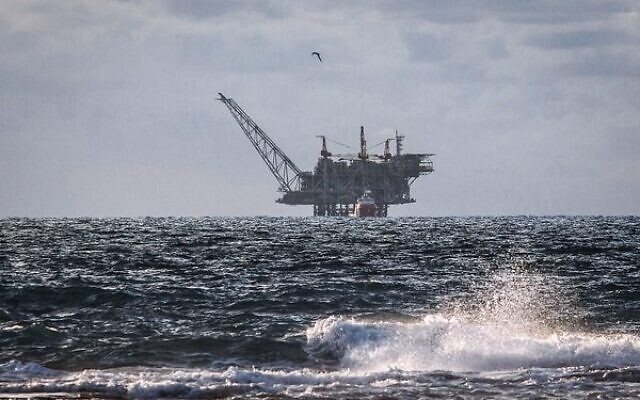Israel to export natural gas via Egypt to Europe

Israel, Egypt and the European Union signed a memorandum of understanding last Wednesday in Cairo that will see Israel export its natural gas to the bloc for the first time.
The landmark agreement will increase liquefied natural gas (LNG) sales to EU countries, which are aiming to reduce dependence on supply from Russia in the wake of its invasion of Ukraine.
Last year, the EU imported roughly 40 per cent of its gas from Russia. It has faced energy difficulties since imposing sweeping sanctions on Moscow.
The agreement will see Israel send gas via Egypt, which has facilities to liquefy it for export via sea.
Energy Minister Karine Elharrar said the signing of the MOU had cemented Israel’s role on the global energy stage.
“This is a tremendous moment in which little Israel is becoming a significant player in the global energy market,” Elharrar said.
She called the deal “historic”, including in terms of the Israeli-Egyptian cooperation involved.
In a joint news conference alongside European Commission chief Ursula von der Leyen and Egyptian Petroleum Minister Tarek el-Molla, Elharrar said the deal came about in the wake of Russia’s invasion of Ukraine.
“The memorandum of understanding will allow Israel to export Israeli natural gas to Europe for the first time, and it is even more impressive when one looks at the string of significant agreements we have signed in the past year, positioning Israel and the Israeli energy and water economy as a key player in the world,” she said.
Elharrar also said the agreement highlighted increasing cooperation between Egypt and Israel.
“This is a statement to those who see in our region only negative forces such as division and conflict,” she said. “This MOU shows us that we are paving a new path of partnership, solidarity and sustainability.”
Von der Leyen said the agreement would help the bloc move away from its dependence on Russia.
“What a special moment,” she said. “I very warmly welcome the signing of this historic agreement.”
She said the agreement was part of Europe’s efforts to diversify energy sources away from Russia and import hydrocarbons from “other trustworthy suppliers” – naming Israel and Egypt, which have emerged as gas exporters in recent years following major offshore discoveries.
El-Molla described the deal as “an important milestone” for cooperation between Egypt, Israel and the EU.
He said it will lead to further cooperation between members of the East Mediterranean Gas Forum, which comprises Jordan, Israel, Cyprus, Greece, Egypt, the Palestinian Authority, France and Italy.
The agreement is initially expected to bring in an annual 1 billion shekels ($411 million) to the state coffers, according to a Channel 12 estimate.
According to the deal, the Israeli gas will be brought via a pipeline to Egypt’s LNG terminal on the Mediterranean before being transported on tankers to the European shores.
Israel has two operational gas fields off its Mediterranean coast containing an estimated 690 billion cubic meters of natural gas combined, and a third offshore rig is in the works. It has already signed gas export agreements with neighbouring Egypt and Jordan.
The agreement was signed a day after a US mediator arrived in Beirut for talks on an offshore extraction dispute that has threatened to snowball into armed conflict. Israel and Lebanon are currently at odds over rights to the Karish gas field, which the Israeli government claims is in its UN-recognised exclusive economic zone, while Lebanon asserts that the waters are disputed.
TIMES OF ISRAEL, AP

comments